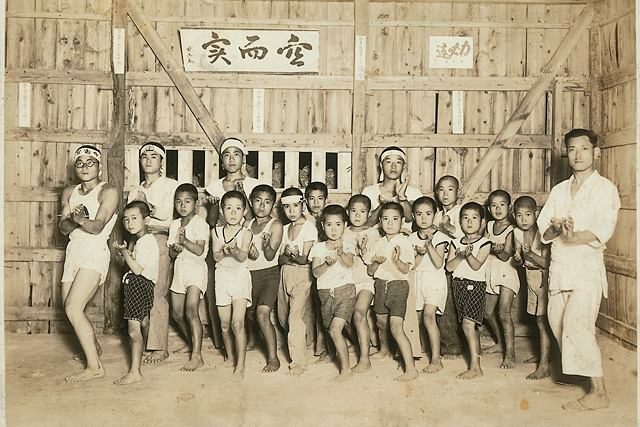At some point in your training you may feel you have reached a plateau, where you can’t seem to get any better no matter how much you train.
I think everyone has felt this at some point.
The reason for this can of course be many things, but in this post I’m going to focus on one of them:
Your physical fitness level is not high enough.
Your physical fitness level is your foundation. Your techniques rest on it. For example, let’s say you are a really great puncher. But… you feel you have reacher your maximum. You just cannot punch any harder or faster no matter how hard you try! This may be because your current physical capabilites don’t allow you too.
It’s simply physically impossible.
So what to do?
Well, you must raise your physical fitness level of course.
You must train other skills in order to improve your main skill.
It’s like if you are stuck in a room. The room is your main skill (like punching). Let’s call it “The Room of Punching”. There are doors to your left and right, but you can’t open them, because you don’t have the keys. You are stuck in an empty, boring, room.
You need to get the keys.
In the case of the “puncher”, he will have to improve the physical fitness level of his arms, back, stomach etc, and when those bodyparts reach a higher physical level, he can go back to training his punch again. He can unlock the doors and move on to the next room, because he has the keys. With his new physical capabilities, he can now improve his punch. Until he eventually reaches more closed doors. Then he will have to get new keys!
One of the most popular ways of improving your physical fitness level is by using weights.
But, before you rush off to the nearest gym, there are some important points you need to consider.
Personally, I feel these three points are the most important:
1. Analyze
The first step is analyzing yourself, and your skills. Do you really need to improve your physical fitness level, or do you need to spend that time on improving your technique instead? Have you really reached your maximum with your current physique?
There is a saying in sports science that the time you spend on supplementary training would give a better result in the end if you had been training the actual skill you wanted to improve instead. This doesn’t apply if you are on a higher level though, so carefully analyze where you are, and if you really need supplementay training.
Your strength will be of little use if you can’t transfer it to your Martial Art/Martial Sport!
2. Imitate your desired skill
A vital part of supplementary training is that the movement you strengthen should be as close as possible to the move you want to improve. Both externally and internally. For example do you need explosive strength or endurance? Or pure speed? Depending on if you are a Wrestler, Karateka or a Kickboxer, you will need different types of strength. You should train the one that is closest to the skill you want to improve.
Most people will need a mix of endurance, explosiveness and basic strength.
It’s all about analyzing.
The movement pattern should also be as close as possible to your punch/kick/whatever you want to improve. Let me use the bench press as an example: If you do the bench press with a wide grip, it would activate your chest muscles to a great degree, good if you want to improve your hook punch. That’s why boxer have huge chests.
If you want to improve your straight punch on the other hand, you should be bench pressing with a narrow grip, which better activates the shoulders and imitates the straight punch.
Again, it’s all about analyzing.
3. When? How often? Etc.
Basically, you should not be doing supplementary training too much. Remember, it’s called supplementary for a reason; it should be secondary. Above all, don’t do it more than your main skill. Becase then your main skill would not be “main” anymore! For most people, 30-45 minutes, two times a week, is more than enough.
Resting is important. If you are tired from your supplementary training, do you think it will have a positive or negative effect on your regular training? Negative, of course. If you feel you are getting too tired from your supplementary training, just take a break.
Supplementary training should generally be done after regular training. It is a well known fact that the skill you want to improve the most should always be done first. And with that logic, supplementary training should be done after normal training.
—
Three simple rules for supplementary training.
There you have it.



4 Comments